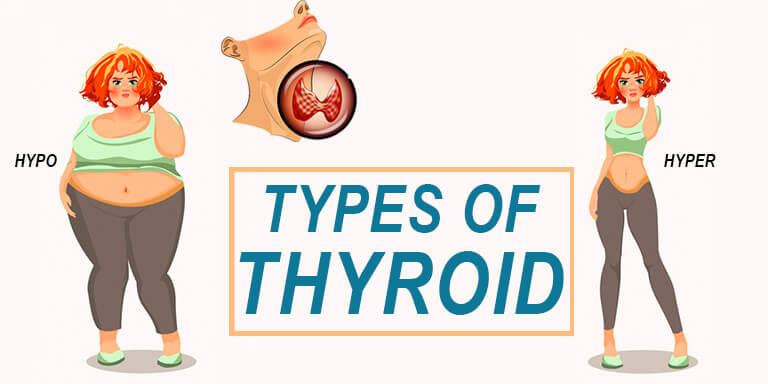The thyroid is a tiny gland located at the base of your neck but has high influence on your body. It helps in regulating body temperature and hormones. If you were recently diagnosed with hypothyroidism, then you would’ve faced symptoms like tiredness, constipation and weak memory.
With the right treatment and a lifestyle that balances fitness and diet, this condition could be managed better. So let’s understand the differences between the types of the thyroid.
Hypothyroidism
When your thyroid gland cannot make enough hormones to function well, it starts to affect your body’s metabolism. When this happens, weight gain takes place. This is a common form of thyroid condition that does not have a guaranteed cure.
This disease can present itself at any age and the risk increases as you get older. Genetics could be one reason. It’s hard to detect this condition, as the symptoms are quite vague. But to contain it is easy.
Hypothyroidism makes you gain a lot of weight, and this is three times more likely to occur in women than men. Try doing moderate to high-intensity cardio for this. It could be anything from fast-paced walking to running.
In case you have swelling in your ankles and feet, then some exercises might hurt. In such cases, water aerobics could be a great option. If that is unavailable, then you can try yoga. This helps you stretch, strengthen and channel your breathing better, all at once.
Hyperthyroidism
Hyperthyroidism is the opposite of hypothyroidism. It occurs when the thyroid gland is producing hormones in excess. While in hypothyroidism you would experience unexplained weight gain, here you would experience weight loss. Apart from that, you would also feel anxious, depressed and will sometimes see yourself in a turbulent state of mind.
Your doctor is likely to suggest a low-iodine diet because high iodine content could further make the symptoms worse. We also recommend you get on a nutrient-dense diet that contains vegetables, legumes, proteins, etc.
But more importantly, you need to avoid eggs, milk, cheese, and saltwater fish. You can also read our home diet for thyroid blog to get details of what to eat or not.
Whether you have hypo or hyperthyroidism, it is important for you to discuss what is the ideal weight and body type you should be aiming for. Consult both your doctor and a fitness expert.

